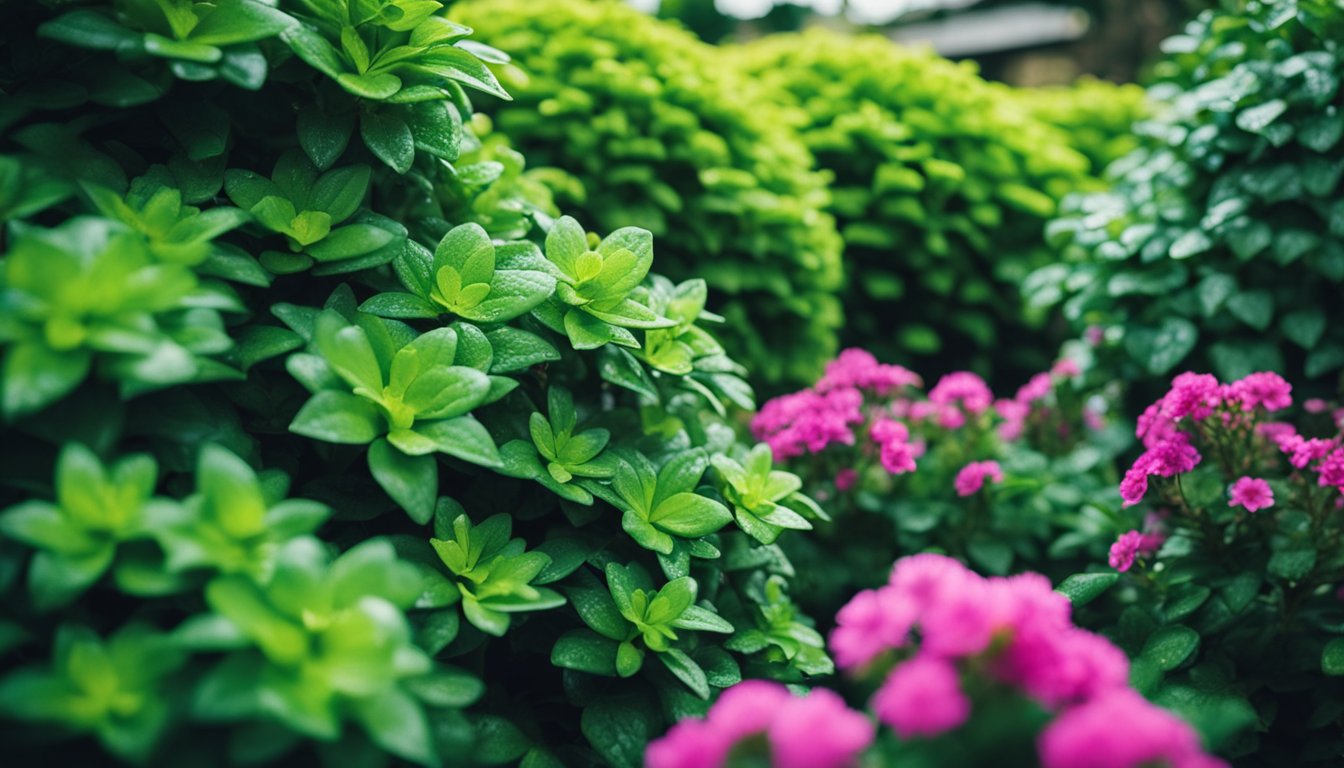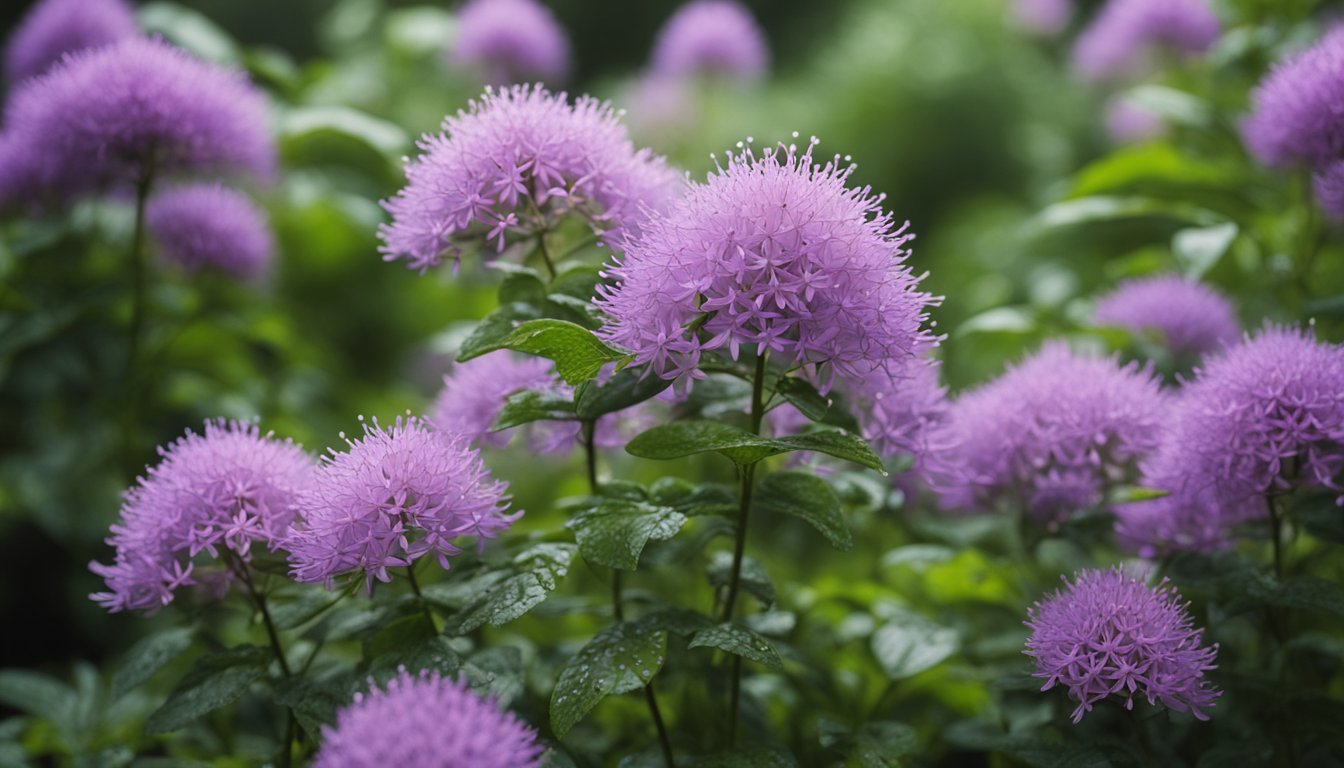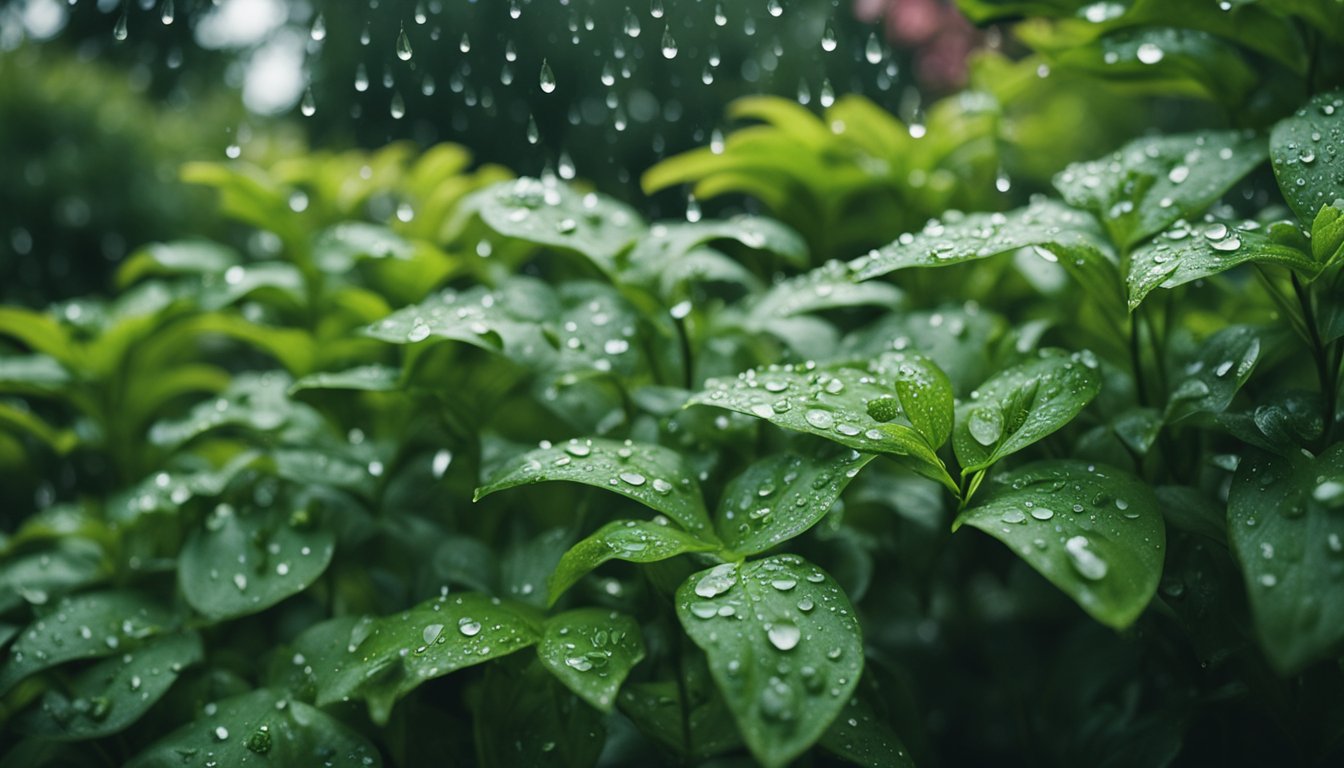Late updated: 17 Jan 2025 09:01
Written by: Emily Thornton
Native UK Shrubs That Thrive In Rainy Gardens: Top Picks For Lush Landscapes
Embracing the lush, rainy climate of the UK can lead to vibrant and thriving gardens that are both beautiful and sustainable. Native shrubs are a fantastic choice for such conditions, offering natural resistance to local pests and diseases. Among the various options, the dog rose stands out with its scented flowers and bright orange-red hips, making it a stunning addition to any garden.

UK’s rain gardens not only delight the eyes but also support an array of local wildlife, providing habitats that help sustain biodiversity. Many native shrubs, like the hornbeam and holly, integrate seamlessly into hedges, offering year-round interest. By selecting appropriately sized plants, gardeners can create dynamic spaces that are functional and ecological.
It's crucial to consider which native shrubs will adapt best to the environment and how they might interact with one another. Understanding their growth patterns and benefits can transform a wet garden into a lively, engaging landscape that speaks to the ever-changing British seasons.
Key Takeaways
- Plant dog rose for its beauty and adaptability.
- Choose shrubs that thrive in rainy climates.
- Support local wildlife with the right plant choices.
Selecting Appropriate Shrubs for Rainy UK Climates
Choosing shrubs for damp environments in the UK requires an understanding of the local soil and water characteristics. Native shrubs like dogwood and guelder rose are excellent choices due to their natural adaptation to wet conditions.
Understanding Soil and Water Conditions
In rainy gardens, soil often becomes waterlogged. To thrive, plants need soil that allows excess water to drain while retaining enough moisture. Loamy soil is ideal, as it offers a good balance of drainage and nutrient retention. Heavy clay soils may require improvement with organic matter to enhance their drainage capabilities. Knowing the specific soil type in our garden helps to select shrubs that are best suited to those conditions.
Monitoring water levels is equally important. Too much water can drown roots, while too little can lead to drought stress. Installing a drainage system, such as raised beds, might be crucial in very wet areas. Ensuring the correct soil conditions promotes robust shrub growth and prevents common issues associated with overly wet environments.
Native Shrubs Well-Suited to Wet Environments
Native shrubs have adapted to Britain's climate, making them more resilient in rainy gardens. Dogwood (Cornus sanguinea), with its striking red stems, adds visual interest and thrives in wetter soils, supporting local wildlife. Holly (Ilex aquifolium) is another great choice, providing shelter and berries for birds throughout the winter.
Hawthorn (Crataegus monogyna), known for its hardy nature, can withstand damp conditions and supports a range of wildlife. Likewise, Blackthorn (Prunus spinosa) forms dense thickets and is excellent for hedging in wetter spots. Elder (Sambucus nigra) and Guelder rose (Viburnum opulus) offer seasonal interest and are well-suited to various moist soils, making them perfect candidates for such environments.
Choosing these native shrubs ensures a thriving, sustainable garden that supports local ecosystems, enhancing the biodiversity of rainy landscapes. Embracing native flora not only beautifies our garden spaces but also contributes positively to our local environment.
Creating Habitats for Wildlife

Our native UK shrubs play a vital role in fostering biodiverse environments, particularly in our rainy gardens. By integrating these shrubs thoughtfully, we can support pollinating insects, birds, and the wider ecosystem. This benefits wildlife while maintaining the natural beauty of our gardens.
Incorporating Shrubs for Pollinating Insects and Birds
Shrubs like the wild cherry tree, rowan, and crab apple provide nectar and pollen for a range of pollinating insects such as bees and butterflies. These woody plants also serve as an ideal habitat for birds, offering them food and a place to shelter.
In our gardens, including shrubs like bird cherry and wild privet creates an environment where insects and birds contribute to pollination. This cycle ensures the health and reproduction of plants, which is crucial for sustaining wildlife.
Additionally, hedge shrubs such as native wildflowers enrich our wildlife gardens by supporting caterpillars and other essential pollinators. These shrubs not only add aesthetic value but also form a vital link in the garden’s ecosystem.
Supporting Local Ecosystems with Native Shrubbery
Native shrubs such as field maple and hedge shrub species are essential for local ecosystems. By planting these, we help maintain the balance between flora and fauna, which supports a diverse range of wildlife.
These shrubs provide a stable environment for small mammals, birds, and beneficial insects, all of which contribute to a thriving ecosystem. Native trees like the wild cherry and bird cherry offer shade and shelter, enhancing biodiversity in wetter climates.
Incorporating such native species helps conserve water, improve soil quality, and reduce maintenance. Our gardens become havens for wildlife, encouraging natural cycles and maintaining ecological health.
Frequently Asked Questions

When planning a garden suitable for the UK’s rainy climate, choosing shrubs that can flourish in wet conditions is key. There are options for evergreen plants, as well as small and tall shrubs native to the UK, that are well-suited to wet environments and clay-rich soils.
Which evergreen plants are best suited for wet soil conditions in the UK?
Evergreens like the holly and the yew maintain foliage year-round. Both can thrive in damp environments typical of rainy gardens. Their resilience to waterlogged soil makes them excellent choices for maintaining structure and greenery.
What small shrubs native to the UK flourish in rainy garden environments?
Dog rose and guelder rose are fantastic small shrubs native to the UK. They not only enhance the aesthetic appeal with colourful blooms but also withstand heavy rainfall. These shrubs are ideal for adding floral interest while managing wet conditions effectively.
Which tall shrubs indigenous to the UK are well-adapted to rainy conditions?
Alder buckthorn and elder are tall shrubs that naturally enjoy moist soils. They bring height and dimension to gardens, adapting well to soggy conditions. Their ability to thrive in such environments ensures a lush presence throughout the seasons.
What plants are most effective for areas with clay soil and poor drainage in the UK?
In regions with clay soil, plants such as willow and alder perform well. Their deep roots help absorb excess water, improving drainage over time. These plants can handle poor soil conditions gracefully, making them a practical choice for water retention areas.
How can I manage a boggy garden with plants that thrive in wet soils?
Managing a boggy area involves selecting species like bog rosemary and marsh marigold. These plants are specialised for waterlogged conditions and contribute to the natural regulation of moisture levels. Their innate tolerance to damp environments makes them crucial for garden success.
What options are available for low-maintenance plants that handle wet soil well in the UK?
For gardeners seeking low-maintenance solutions, plants like sedge and meadowsweet are excellent options. These require minimal care and adapt well to wet soils. They provide year-round interest with little intervention needed, catering to those with a laid-back approach to gardening.
